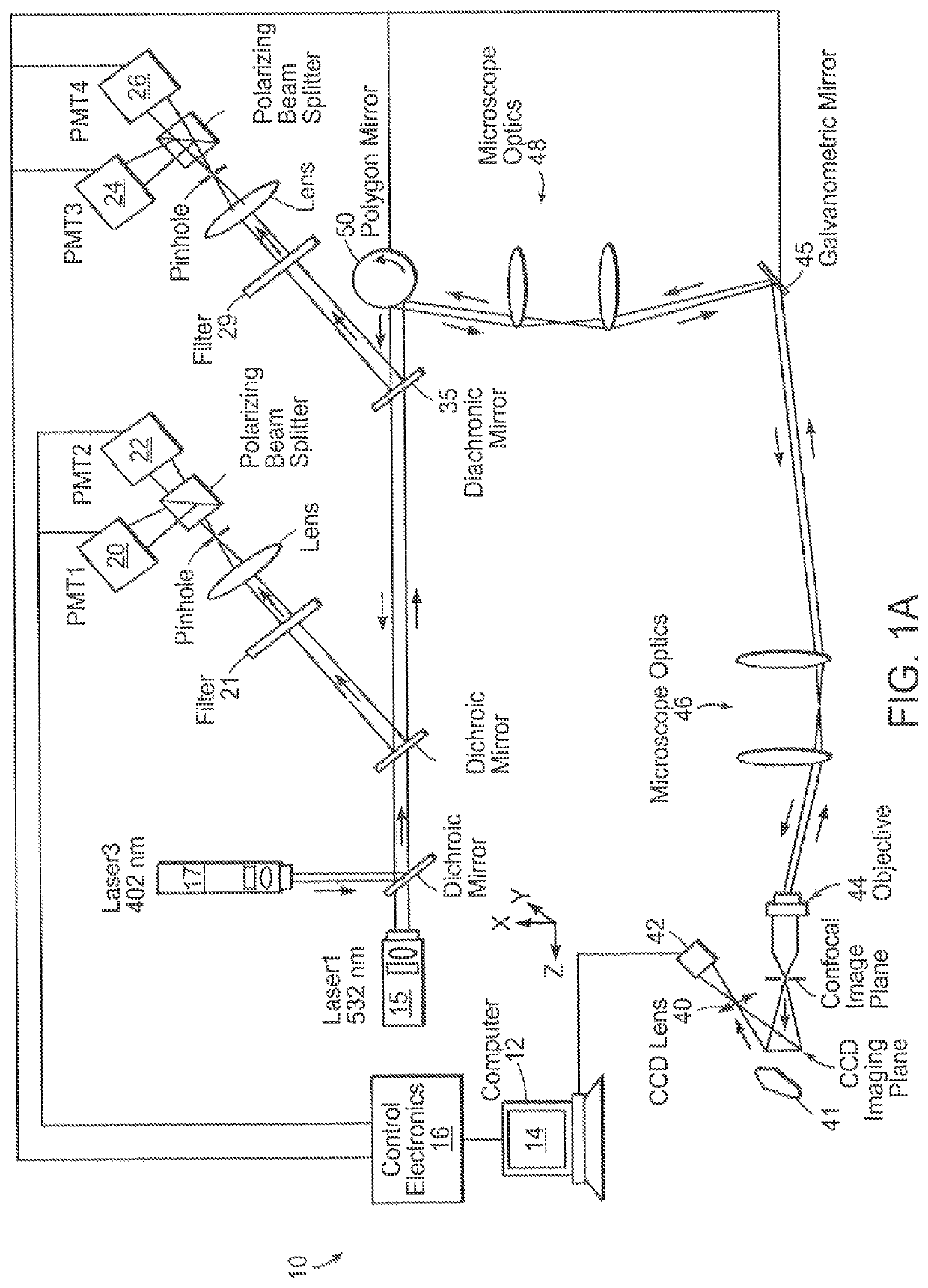Devices and methods for optical pathology
a technology of optical pathology and optical x-ray, applied in the field of optical x-ray devices and methods, can solve the problems of toxic hematoxylin and cannot be applied in vivo, and achieve the effect of improving the discrimination of cancerous tissu
- Summary
- Abstract
- Description
- Claims
- Application Information
AI Technical Summary
Benefits of technology
Problems solved by technology
Method used
Image
Examples
Embodiment Construction
[0036]A method and device for intraoperative, in vivo, detection of pathological cells and margins. Preferred embodiments utilize a plurality of complementing stains that are imaged for delineating cancers such as skin or breast cancers during surgery.
[0037]Clinical evidence shows that eligible patients undergoing breast conservation therapy (BCT) have the same long-term survival rate as those undergoing mastectomy, when patients with BCT do not have a local regional recurrence. Thus, complete removal of breast cancer is of primary importance. Currently, re-excision is required in up to 60% cases because most of BCT procedures are performed without intraoperative margin control. Standard histopathological evaluation of the excision margins performed during the surgery reduces re-excision rate to approximately 20%. However, due to high cost, it has not become widely available. Therefore, a reliable cost-effective method for real-time examination of breast cancer margins and other can...
PUM
 Login to View More
Login to View More Abstract
Description
Claims
Application Information
 Login to View More
Login to View More - R&D Engineer
- R&D Manager
- IP Professional
- Industry Leading Data Capabilities
- Powerful AI technology
- Patent DNA Extraction
Browse by: Latest US Patents, China's latest patents, Technical Efficacy Thesaurus, Application Domain, Technology Topic, Popular Technical Reports.
© 2024 PatSnap. All rights reserved.Legal|Privacy policy|Modern Slavery Act Transparency Statement|Sitemap|About US| Contact US: help@patsnap.com










